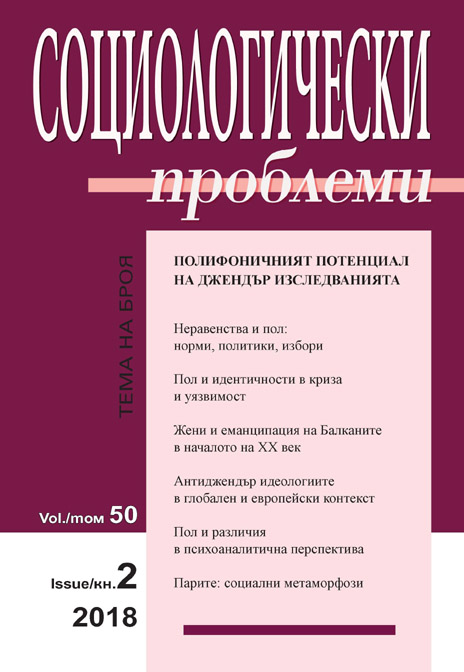Способността да се избира като измерение на неравенствата по пол
The Capability to Make Choices as a Dimension of Gender Inequalities
Author(s): Rumyana Stoilova, Petya Ilieva-TrichkovaSubject(s): Social Sciences, Gender Studies, Sociology
Published by: Институт по философия и социология при БАН
Keywords: Capability; work-family balance; gender norms; gender inequalities; family policies
Summary/Abstract: The present article explores the capability as a dimension of inequalities between men and women. In order to achieve this, we test the factors which influence on the traditional norm that women should be prepared to cut down on their paid work for the sake of their family, the importance of work-family balance in the context of job-search and time spent on unpaid housework as a constraint of the freedom to decide how to spend your time and to plan your activities independently. Our study builds upon the capability approach framework and contributes to the studies which have applied it in the sociology with regard to work-life balance from a gender perspective. The results show that the main differences between young men and women are related with three individual-level factors: education, labour market status and having a child in the family. The empirical findings regarding the factors at macro-level contrast previous research which shows that individual’ capabilities for work-life balance are shaped by policies and norms, reflected in the take-up of parental leave, childcare, and part-time work, but reveal that the major differences between young men and women at macro level are due to the amount of family/children benefits received in the country where they live in. Higher share of family benefits decreases the importance of work-family balance when searching for a job. Our study also shows that in contrast to women, the estimated odds of considering the work-family balance as important when choosing a job are higher for men in countries belonging to Conservative, Mediterranean (family-oriented) and Post-Socialist welfare regimes than they are for men in Liberal regimes.
Journal: Социологически проблеми
- Issue Year: 50/2018
- Issue No: 2
- Page Range: 515-536
- Page Count: 22
- Language: Bulgarian
- Content File-PDF

